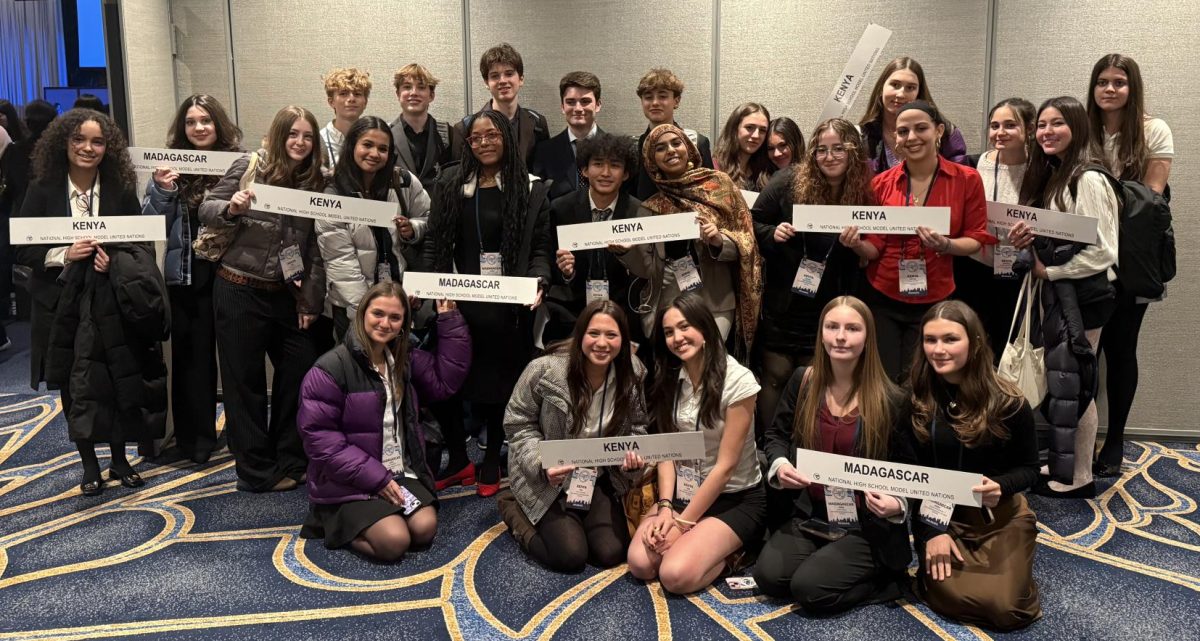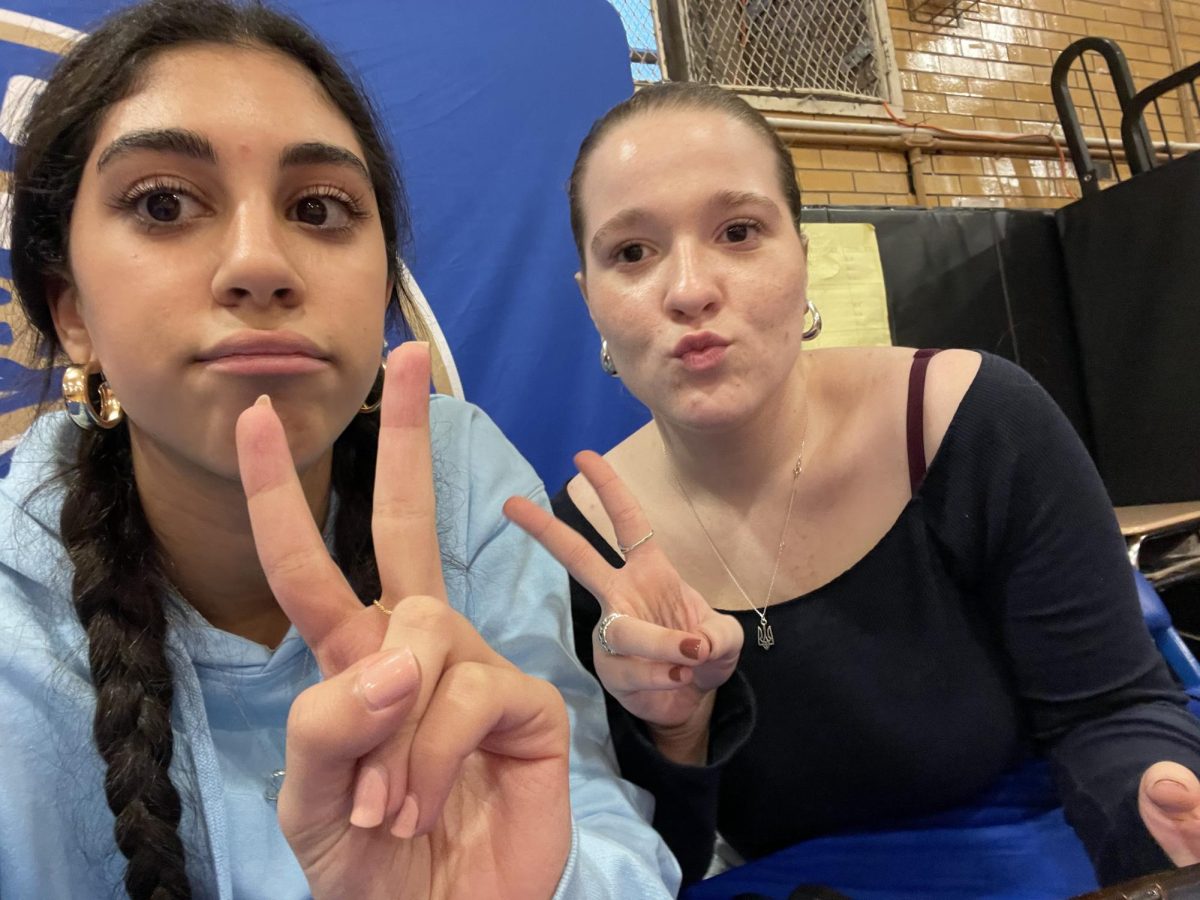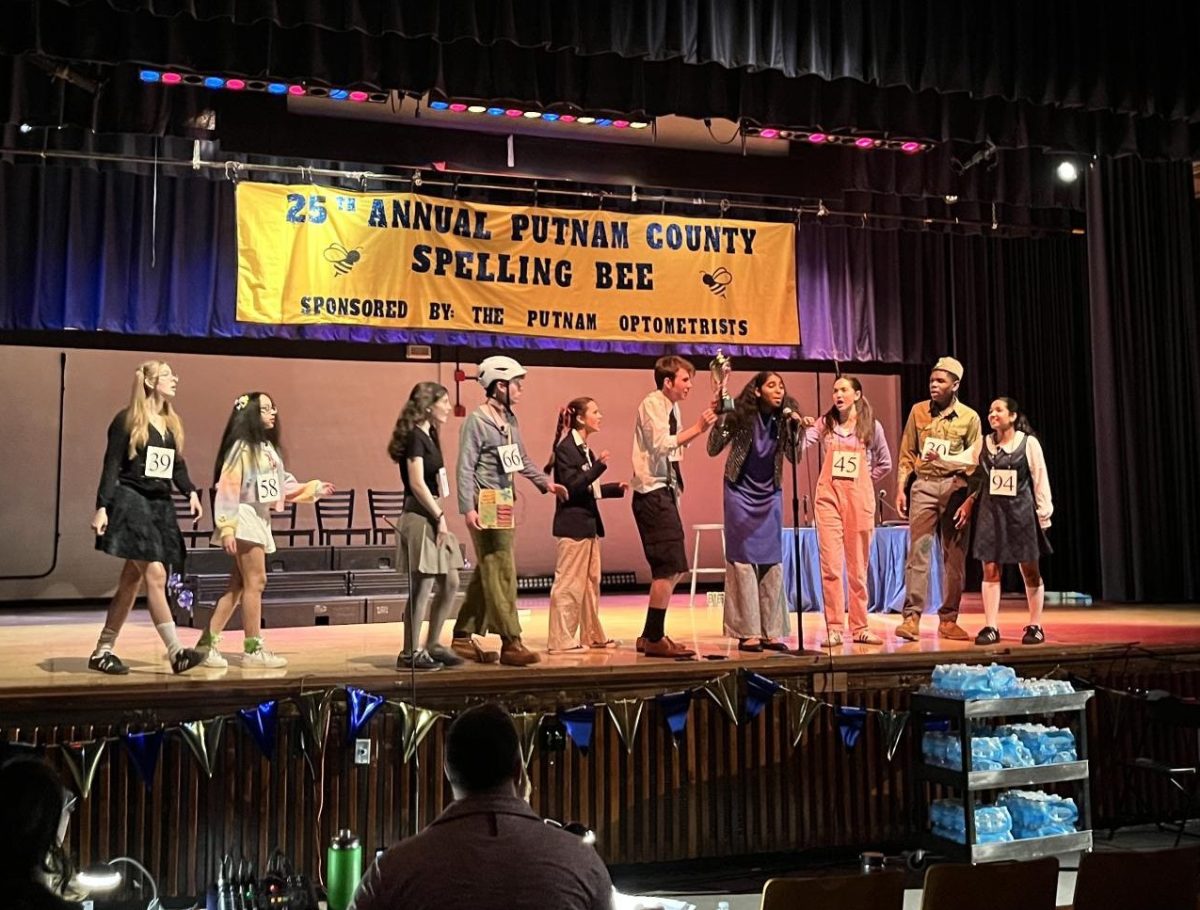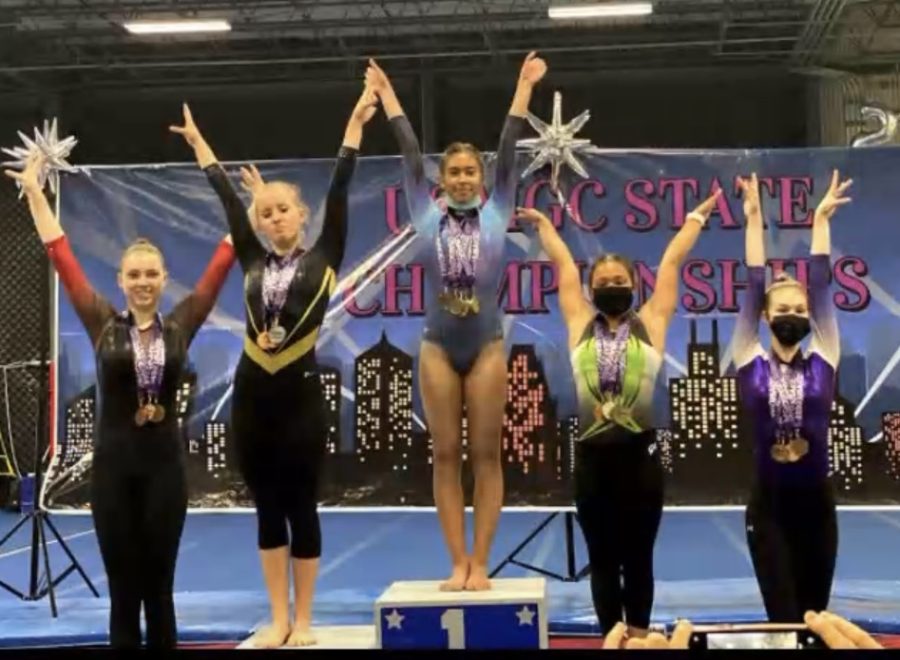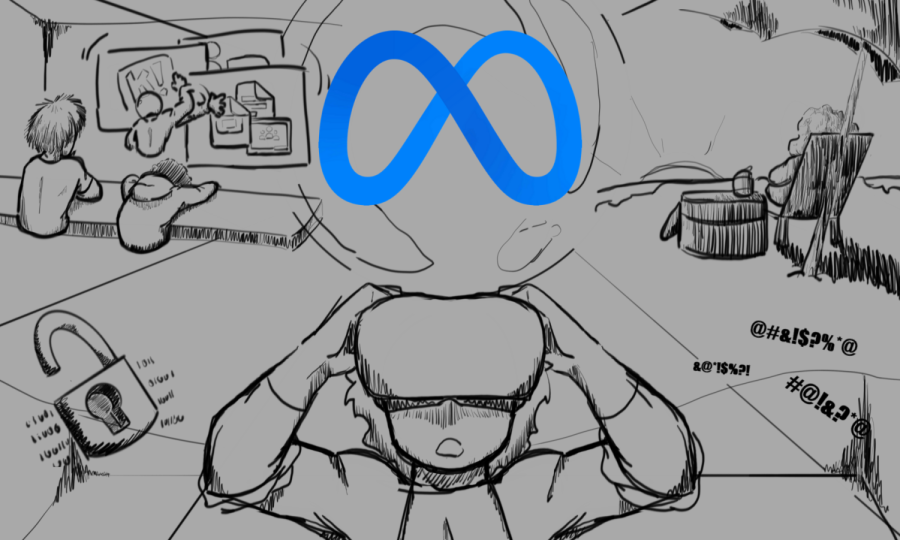When the clock hits four at MBHS, for most students this means that clubs are about to end and they can finally go home. But this is not the case for everyone. “Look at the time—we have to go!” Rebecca Yevdayev exclaims at 4pm on winter school days. She packs up her bag, urging her co-conspirator Dasha Trofimov to do the same. They run through the halls, speeding past departing students, in a scene akin to the game Temple Run. Unsecured lockers swing open and shut from the wind created by their intense speed. Once they reach staircase J, the duo practically jump to the second floor, making a sharp turn towards the gym.
Why all this ruckus? Well…these two commotion-causing junior girls are racing to assume their duties as the girls varsity basketball team managers.
How did these two–driven staff writers for the school paper, dedicated student government reps, captains of the debate team, and National Honors society members—end up with yet another title under their belts? We got the inside scoop from the sources themselves.
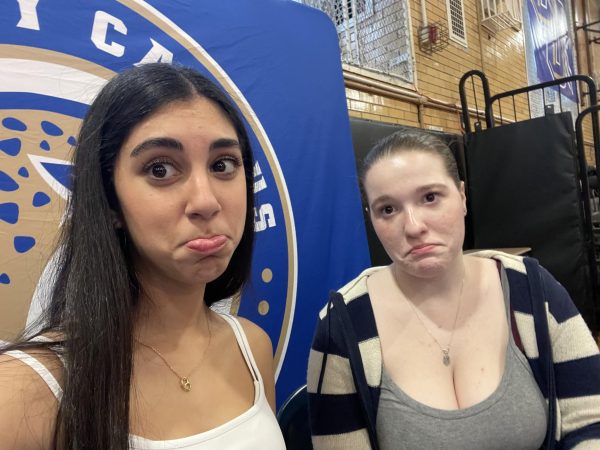
During freshman year, when a friend mentioned to Dasha the possibility of becoming manager for one of the school sports teams, her interest was sparked. Conveniently, Dasha’s advisor–Coach McCarthy–was tapped into the beating pulse of the John Jay athletic program as the coach of the girls’ basketball and softball teams. An inspired Dasha casually inquired about any manager openings as she picked up her report card from her advisor. He offered her her pick of manager roles–she could manage any John Jay team she wanted. “I chose girls varsity basketball because I already knew Mr. McCarthy. I did not want to meet some random coach who I did not know—it would be pretty awkward,” she shares. Though Rebecca was not a member of the 18 blessed advisees in Coach Mccarthy’s crew, she was lucky enough to be friends with Dasha and eagerly signed up for the basketball management team.
There are countless jobs these intrepid basketball managers must tackle: monitoring the shot clock, stopping and starting the game clock, keeping score and recording stats in the game book. Dasha recalls her first game as “confusing” and “nerve wracking.” Rebecca describes it in one word: “intense”. Both of their recollections share the overarching theme of stress. For Dasha’s first game, she worked on the book; while watching the game, she fumbled to record rebounds, points scored and penalties. Dasha looked down at some point and apparently half the game had flown by. “I messed up and [confused] who got points and eventually just started giving random people points,” she confesses. Rebecca concurs, “Yeah, my first game wasn’t so relaxing.” She was regulating the shot clock. Those who watch basketball know that the shot clock is simultaneously the most important AND most difficult job known to man. Monitoring the shot clock–which is reset after a team shoots and scores or the ball hits the rim or backboard–requires knowledge of the rules of basketball, as well as eagle eyes attention to the game. Miss a beat and the entire game will basically have to restart. No one will be happy about this, especially the crowd, and they might start “booing and throwing tomatoes at you in anger” as Rebecca describes. She also admits that she faltered quite a few times so she decided it would be best for her to retire and switch to recording stats. Beware players–if you are mean to Rebecca (as some were her rookie season), some of your points might go mysteriously missing from the record books.
Neither Dasha nor Rebecca had watched basketball or knew anything about the sport when they blindly took on their roles. They were awarded their positions out of pure nepotism. However, Dasha came prepared, arriving to her first game with a little notebook with pages full of the basic rules of basketball complete with diagrams. Rebecca instead chose to go with her instincts—and learn in real time. “Bad, bad, bad idea,” she explains with the wisdom of hindsight. Rebecca realized, 34 mistakes in her basketball managing career, that she should have probably watched a video or two beforehand instead of jumping into her position immediately. That might have saved her some embarrassment and tears.
Now, two years into their basketball management careers, Dasha and Rebecca know the drill of things: arrive at the 2nd floor gym, claim their seats, take a lap or two around John Jay, return to their seats, greet the referees, PAY ATTENTION, break for half time with another lap or two, resume seated position, PAY ATTENTION, end game, clean up, flee the scene and go home.
Come game time, the crowds shout, the cheerleaders stomp and the players run, while the managers stress and try not to cry. Now that Dasha and Rebecca have established their reign of dominance and are settled into their roles, Dasha operating the scoreboard, Rebecca on book, the routine is easier now. But they can never get to comfortable. Basketball games are played late in the day after clubs have already ended when Dasha and Rebecca are already exhausted from the school day. They fight back sleep as they watch the game with weary eyes while still appearing strong and attentive enough to avoid completely ruining the game. “It is hard when you are tired and trying to do your job but everyone is yelling in your ear,” Dasha shares. The shouting of the refs, the players, the fans is her biggest complaint about the gig. Rebecca’s personal pet peeve is when the referees are not clear with their fouls or warnings so it’s up to the managers to interpret their secret hand codes or pronouncements delivered in mumbled fragments. “Of course, our interpretation ends up being wrong and we get yelled at again,” she reminisces about her times at the table.
Despite the challenges Dasha and Rebecca often face, they stand strong together in harmony and battle through. They often get asked why they devote so much time and energy to basketball if they are not getting paid. But the dynamic duo assures the worriers that they do get rewarded in a different way—those ever elusive community service hours. With the NHS requiring thirty hours of community service, Dasha and Rebecca do not have to think twice about where they will earn them. “I actually really like the games,”Rebecca admits, “as much as I [might claim to] hate them. Once I am there, I get really hyped up and feel intense Jaguar pride from my bones.” Dasha shares a similar fondness for the sport and cheers for the Jaguars, even though the table is supposed to be unbiased.
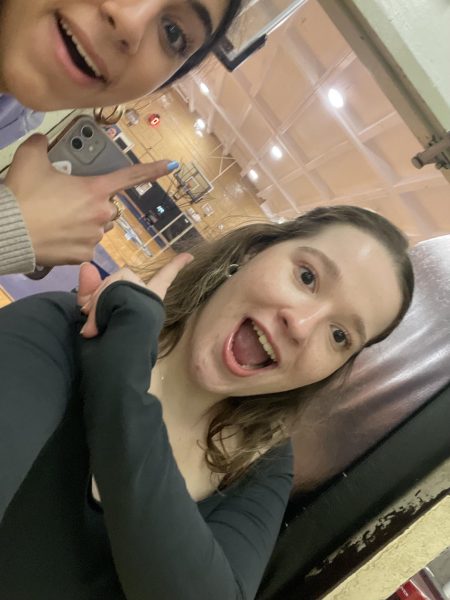
As Dasha and Rebecca have become more accustomed to their routine (and when they actually learned what they were supposed to do), the games have become more and more enjoyable. Rebecca observes that she and her co-manager have unintentionally memorized the cheerleaders’ chants. “After two years of going to these games,” she explains, “we basically know all the chants and sing out loud when the cheerleaders come out. It’s really fun!” Dasha complains that she can never focus on the game when Rebecca keeps singing the chants so loudly that she nearly overpowers the cheerleaders: “It gets annoying when I am trying to focus on the game.” Rebecca, however, claims that it is not that big of a deal.
While they would never choose to watch a basketball game for fun, they admit that they enjoy watching the Girls Varsity Jaguar games. Dasha loves when the Jags are in a head-to-head showdown with an evenly matched opponent. When there is no team that is obviously going to win, the game is especially tense and far more interesting to watch. The cherry on top is of course when, in this intense atmosphere, the Jaguars swoop in at the last minute and win.
